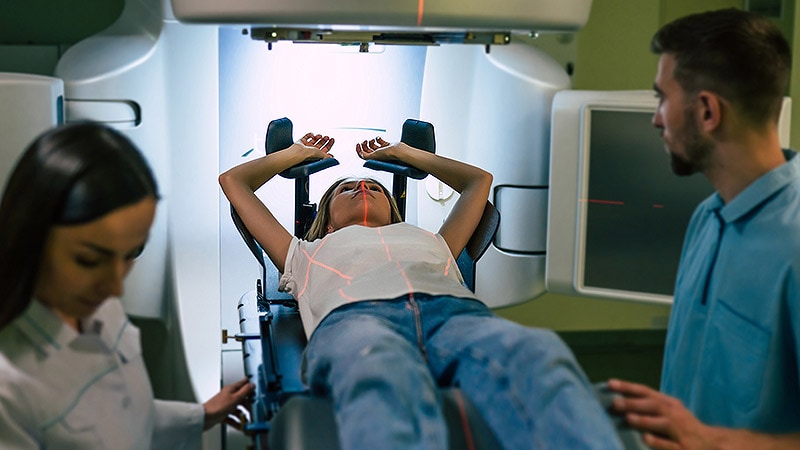The optimal management of stage III non-small cell lung cancer (NSCLC) is widely debated and is a rapidly evolving area. However, less than one in five stage III patients in England receive optimal multimodality treatment.
A study published in the journal of the Royal College of Radiologists aimed to map commonalities and differences in clinician judgement across the UK as well as infrastructure and resources for managing stage III NSCLC.
The national survey of practice used a 30-minute web-based survey. Invitations were sent via e-mail to the British Thoracic Oncology Group and the Society of Cardiothoracic Surgery membership and a healthcare professional market research panel. In total, 160 respondents completed the survey.
Although opinion was variable, there was a preference for surgery and adjuvant chemotherapy in stage III N2 (single station) NSCLC that could be treated with lobectomy, but this preference switched to chemoradiotherapy in single-station N2 requiring a pneumonectomy or multi-station N2.
The PD-L1 status influenced the treatment decision in 'potentially resectable' N2 for a number of clinicians who opted for concurrent chemoradiotherapy with adjuvant durvalumab when PD-L1 ≥1%.
A joint clinic with surgeons and oncologists was considered the most important factor for shared decision making with patients.
There are barriers to recommending trimodality treatment, e.g. concerns over the negative impact on quality of life.
A proportion of clinicians favoured palliative treatment in certain clinical scenarios, including supraclavicular fossa lymph node metastases, patients with borderline fitness or high PD-L1 expressors >50%.
The survey highlights the need for infrastructure development, such as reflex PD-L1 testing and joint surgical and oncology clinics.
The authors say there is a need for further research into the impact of multimodality treatment on quality of life, and education to improve confidence in multimodality treatment.



